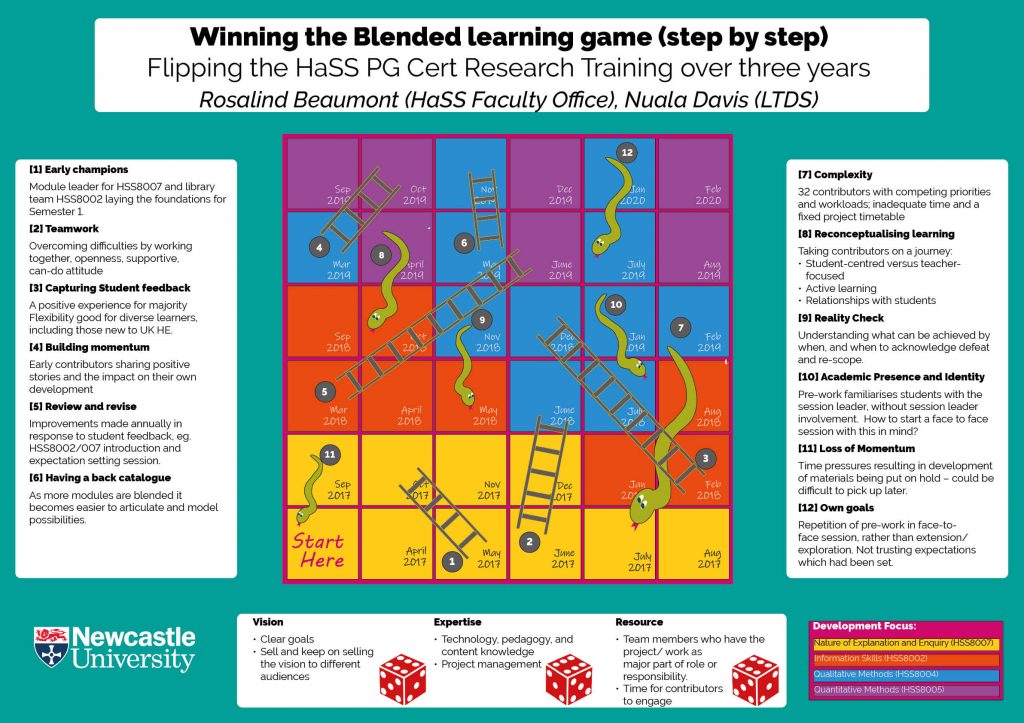How is it possible to represent three and a half years of work in a poster? About a year ago Ros Beaumont and I met up to do just that. Our project: the redesign of the HaSS PG Cert Research Methods involved a huge effort, the gantt chart was redrawn regularly, there were dramas and ups and downs.
We wanted to be honest about our struggles and to foreground the importance of the collaboration at the heart of the project. So, we represented it as a board game, with ups (the ladders) and downs (the snakes). It’s never a good idea to put an A1 poster on a blog post, but do have a closer look at it as a pdf.

The ladders
- Early champions: We wouldn’t have got off the blocks without Dr Adam Potts taking on the module lead for HSS8007 and the library team being willing to rework HSS8002.
- Teamwork: this was a shared endeavour, we had difficulties to overcome, we had to be open, supportive and bring a can-do attitude.
- Capturing Student feedback: early results showed that this was a positive experience for majority, the flexibility was great for diverse learners, including those new to UK HE. Initial positive feedback helped us recruit collaborators.
- Building momentum: we also encouraged our early contributors to share positive stories and talk about the impact on their own development
- Review and revise: we made annual adjustments in response to student feedback, eg. introducing a face to face session for HSS8002/007 introduction and expectation setting session.
- Having a back catalogue: As more content was blended it became easier to articulate and model possibilities for new topic leads.
The Snakes
- Complexity: 32 contributors with competing priorities and workloads; inadequate time and a fixed project timetable – we needed to be able to deliver modules to students.
- Reconceptualising learning: we had to take our contributors on a journey, to rethink their topics in a student-centred versus teacher-focused way, incorporating active learning and having a different relationship with students.
- Reality Check: Understanding what can be achieved by when, and when to acknowledge defeat and re-scope.
- Academic Presence and identity: We found that pre-work familiarises students with the session leader without the involvement of the session leader. How then do they start a face to face session?
- Loss of Momentum: Time pressures resulted in development of materials being put on hold – these though needed to be picked up later.
- Own goals: Not trusting expectations which had been set and using valuable in person time to repeat pre-work rather than extend and explore.
The enablers
- Vision: Clear goals, Sell and keep on selling the vision to different audiences
- Expertise: Technology, pedagogy and content knowledge
- Project management: prioritising, monitoring
- Resource: Team members who have the project/ work as major part of role or responsibility. Time for contributors to engage.
The poster was made for our Covid-cancelled 2020 Learning and Teaching Conference; but we managed to submit this to the event in 2021 and won the poster competition!
